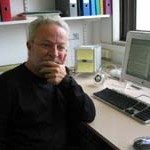Link to Pubmed [PMID] – 10837053
Annu. Rev. Immunol. 2000;18:83-111
In this essay we suggest that the primary goal of the cells of the immune system is to ensure their own growth and survival. In adults, in steady-state conditions, the number and distribution of lymphocyte populations is under homeostatic control. New lymphocytes that are continuously produced in primary and secondary lymphoid organs must compete with resident cells for survival. We discuss recent findings supporting lymphocyte survival as a continuous active process and implicating cognate receptor engagement as fundamental survival signals for both T and B lymphocytes. The conflict of survival interests between different cell types gives rise to a pattern of interactions that mimics the behavior of complex ecological systems. In their flight for survival and in response to competition, lymphocytes use different survival signals within different ecological niches during cell differentiation. This is the case for T and B lymphocytes and also for naive and memory/activated T and B cells. We discuss how niche differentiation allows the co-existence of different cell types and guarantees both repertoire diversity and efficient immune responses.

